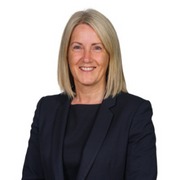- Home
- Key Information
- Safeguarding
Safeguarding
Charters School is committed to safeguarding and promoting the welfare of children and expects all staff and volunteers to share this commitment.
Safeguarding goes beyond the contributions made to child protection in relation to individual children. Our objective is to provide a safe environment for all young people to learn and reach their full potential.
This means that we have a Safeguarding and Child Protection Policy and procedures in place which we refer to. All staff (including supply staff, volunteers and governors) must ensure that they are aware of these procedures. Parents and carers are welcome to read the policy which can be found on our Policies page.
Charters School follows the procedures set out by the Local Safeguarding Children’s Board and take account of guidance issued by the Department for Education (DfE) and the document ‘Keeping Children Safe in Education’.
Sometimes we may need to share information and work in partnership with other agencies when there are concerns about a child’s welfare. We will ensure that our concerns about our students are discussed with the parents/carers first unless we have reason to believe that such a move would be contrary to the child’s welfare.
To achieve this objective we have systems in place designed to:
- create a safe and positive atmosphere for all students to be challenged academically and develop personally
- promote the school ethos of Unity Respect Excellence
- prevent unsuitable people working with children and young people
- promote safe practice and challenge poor and unsafe practice
OUR SAFEGUARDING TEAM FOR 2025/26
Members of our Safeguarding Team can be contacted below.
To view this two column table please scroll down/left.
|
Overall Safeguarding Responsibility
|
Designated Safeguarding Lead
|
|
Safeguarding Lead
|
Deputy Designated Safeguarding Lead |
|
Deputy Designated Safeguarding Lead |
Deputy Designated Safeguarding Lead |
In addition, we have two designated Safeguarding Trustees, Gassan Shaladan and Sally Graham. They can be contacted by using the emails below:
g.shaladan@chartersschool.org.uk
s.graham@chartersschool.org.uk
SAFEGUARDING CONCERNS
If you have a Safeguarding Concern about any of our students then please contact the Safeguarding Team by clicking on the red writing underneath the team's images above.
Alternatively you can email safeguarding@chartersschool.org.uk; this will be sent directly and confidentially to the Designated Safeguarding Lead.
If you have a safeguarding concern outside of school hours please contact the police on 101 or, if it is an emergency, contact 999.
ONLINE SAFETY
We continue to subscribe to National Online Safety and use their resources in school to support both parents and students. View these easy guides about setting up Android and Apple devices safely including parental controls.
As always if you have any concerns with your child’s e-safety then please contact their Tutor or Head of Year to access advice and support.
MORE INFORMATION
There is lots of information and advice on tackling mental health issues on our Pastoral Page.
Students are also able to email worried@chartersschool.org.uk to start their own conversation around something that is troubling them. All emails to this account are monitored and followed up.
Bullying
Student Support & Helplines
CHILD PROTECTION AND SAFEGUARDING CONCERNS
EXAM REVISION TIPS & MANAGING STRESS
WHERE YOU CAN GET HELP LOCALLY
MENTAL HEALTH & WELLBEING
- Young Minds- Mental health and wellbeing – for parents
- Teen Mental Health - A Guide for Parents
- Voice collective- support for parents
- Harmless- information about self harm
- Information on suicide and self harm for parents
- NSPCC- Advice for parents on why children self harm
- Barnados – Whatever you’re going through, we’re here to help
- Mind – for better mental health
ALCOHOL AND DRUGS
- FRANK- Worried about a child? Advice for parents and carers
- NHS – Better Health service for quitting smoking
- Al Anon – family groups to support alcoholism
BULLYING & ONLINE SAFETY
RELATIONSHIPS & SEXUAL HEALTH
- Domestic violence- Information and Advice
- NHS - Domestic Abuse Advice
- White Ribbon campaign
- NHS – Talking to your teenager about sex
- Stonewall – Coming out, advice and guidance
- FFLAG – Support for parents of children from the LGBT community
- Forced Marriage Unit
OTHER TOPICS
- Thames Valley Police – Advice and Information
- NHS 111 Non Emergency Health Service
- Beat – Support for eating disorders
Child Protection & Safeguarding
Child Abuse CategoriesDomestic Abuse and Parental ConflictGovernment Publication - Child Sexual ExploitationGovernment Publication - Female Genital MutilationGovernment Publication - Forced MarriageHome Office County Lines BehaviourHome Office County Lines GuidanceLets Talk About It - Radicalisation and Extremism
Online Safety
E-safetyInternet matters Navigating Secondary SchoolInternet matters Protecting Children from online pornographyInternet Matters What parents need to know about online groomingNational Online Safety Keeping Your Child Safe OnlineNational Online Safety SextingNSPCC Keeping Your Child Safe OnlinePersuasive DesignWhat you need to know about TrackersWhat you need to know about VPNs







